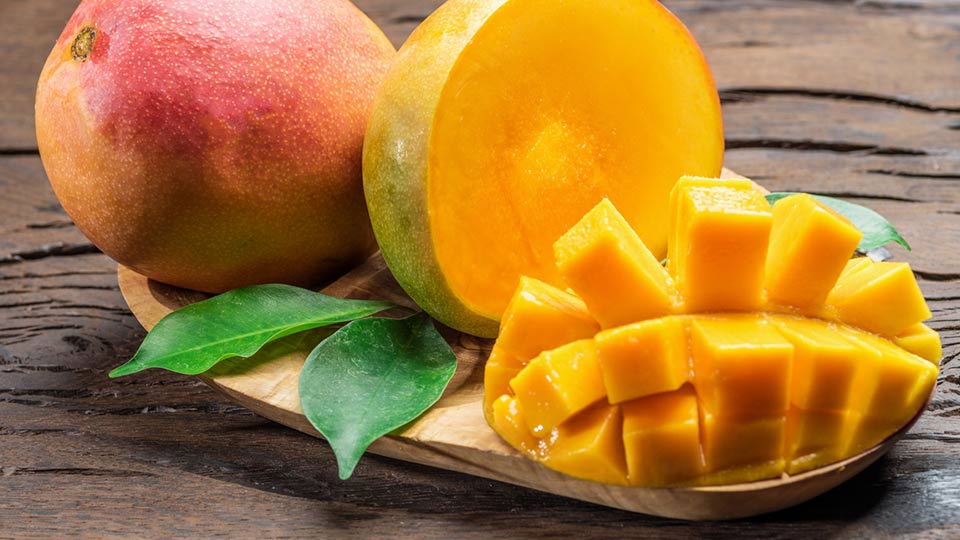Mangoes are delicious and nutritious tropical fruits that are enjoyed by many people worldwide. However, for some individuals, eating mangoes can cause stomach pain and discomfort.
There are several reasons why this may happen, including mango allergy, oral allergy syndrome, mango intolerance, and other digestive conditions.
In this article, we will explore these potential causes of stomach pain after eating mango and discuss ways to prevent and manage this discomfort.
Mango Allergy
Mango allergy is a type of food allergy that occurs when the immune system mistakenly identifies the proteins in mango as harmful. This can lead to a range of symptoms, including stomach pain, bloating, diarrhea, and vomiting.
If you suspect that you have a mango allergy, it is important to consult with a healthcare professional for diagnosis and treatment. Treatment may involve avoiding mango and other related fruits, as well as taking antihistamines or other medications to manage symptoms.
In addition to managing mango allergy, it is important to be aware of potential cross-reactivity with other foods. Some people with mango allergy may also experience symptoms after consuming other fruits or vegetables, such as kiwi, avocado, or banana.
It is also important to read food labels carefully, as mango may be an ingredient in a variety of foods and products, including smoothies, desserts, and even cosmetics.
Oral Allergy Syndrome
Oral allergy syndrome is a condition in which the body’s immune system reacts to certain proteins found in fruits, vegetables, and nuts. Mangoes are one of the many fruits that can trigger oral allergy syndrome.
The symptoms of oral allergy syndrome can include itching, swelling, and a tingling sensation in the mouth and throat. Some people may also experience abdominal pain, nausea, and vomiting.
One of the most effective ways to manage oral allergy syndrome is to avoid the trigger foods altogether. If you experience symptoms after eating mangoes, speak with a healthcare professional for advice on how to manage your symptoms.
Other ways to manage oral allergy syndrome may include:
- Cooking or baking fruits and vegetables: Cooking or baking fruits and vegetables can break down the proteins that trigger oral allergy syndrome, making them safer to consume.
- Avoiding cross-contamination: Cross-contamination can occur when the same cutting board or utensils are used to prepare both trigger foods and safe foods. Wash all utensils and surfaces thoroughly to prevent cross-contamination.
- Taking antihistamines: Antihistamines can help to relieve the symptoms of oral allergy syndrome. These medications are available over-the-counter and may be recommended by a healthcare professional.
Mango Intolerance
Mango intolerance is a condition in which the body is unable to properly digest mango. The symptoms of mango intolerance can vary from person to person, but may include:
- Abdominal pain
- Bloating
- Diarrhea
- Nausea
- Vomiting
- Gas
- Headache
- Itching in the mouth or throat
- Swelling of the lips, tongue, or throat
These symptoms can occur immediately after consuming mango or may take several hours to develop. In some cases, the symptoms may be severe and require medical attention.
Managing Mango Intolerance
If you suspect that you have mango intolerance, it is important to speak with a healthcare provider to rule out any underlying medical conditions. If mango intolerance is diagnosed, there are several steps you can take to manage the condition:
- Avoid mango and mango-containing foods: The best way to manage mango intolerance is to avoid mango and foods that contain mango. This may include certain fruit juices, smoothies, and desserts.
- Read food labels: It is important to read food labels carefully to identify foods that contain mango or mango extract. Mango is sometimes used as a flavoring agent in processed foods and condiments.
- Try cooked mango: Some people with mango intolerance are able to tolerate cooked mango. Cooking mango can help break down the proteins that can cause an allergic reaction.
- Consider an elimination diet: If you are unsure if you have mango intolerance or if you are having trouble identifying other foods that may be causing symptoms, consider an elimination diet. This involves eliminating certain foods from your diet and gradually reintroducing them to identify any triggers.
- Seek medical attention: If you experience severe symptoms after consuming mango, such as difficulty breathing or swelling of the throat, seek medical attention immediately.
Irritable Bowel Syndrome
Irritable bowel syndrome (IBS) is a chronic gastrointestinal disorder that affects millions of people worldwide. It is a functional disorder, meaning there are no visible signs of damage or disease in the digestive tract. IBS is characterized by a range of symptoms, including abdominal pain, bloating, constipation, and diarrhea, that can significantly impact a person’s quality of life.
The symptoms of IBS can vary widely from person to person, and they can come and go over time. Some of the most common symptoms of IBS include:
- Abdominal pain or discomfort: This may be experienced as a dull ache or a sharp pain in the lower abdomen.
- Bloating: This is the feeling of fullness or tightness in the abdomen, often accompanied by visible swelling.
- Changes in bowel movements: This can include constipation, diarrhea, or a combination of both. Bowel movements may also be urgent or accompanied by mucus.
- Gas: This is a common symptom of IBS and can contribute to bloating and discomfort.
Managing Irritable Bowel Syndrome
While there is no cure for IBS, there are several ways to manage its symptoms. Some of the most effective strategies include:
- Dietary changes: Certain foods can trigger IBS symptoms, so avoiding these foods can help to reduce symptoms. Common triggers include fatty or spicy foods, caffeine, alcohol, and artificial sweeteners.
- Stress management: Stress can exacerbate IBS symptoms, so finding ways to manage stress is important. This can include relaxation techniques like deep breathing, yoga, or meditation.
- Exercise: Regular exercise can help to regulate bowel movements and reduce stress, both of which can help to manage IBS symptoms.
- Medications: In some cases, medications may be used to manage IBS symptoms. These may include antispasmodics to relieve abdominal pain, laxatives to relieve constipation, or anti-diarrheal medications to control diarrhea.
Gastroesophageal Reflux Disease (GERD)
Gastroesophageal reflux disease (GERD) is a chronic condition in which stomach acid flows back into the esophagus, causing discomfort and potential damage to the lining of the esophagus.
Symptoms of GERD include heartburn, regurgitation, and difficulty swallowing. It can also lead to chronic cough, asthma, and dental erosion.
Managing GERD involves making lifestyle changes such as avoiding trigger foods and drinks, eating smaller meals, and not lying down after eating. Other treatments include medications to reduce acid production in the stomach, and surgery in severe cases.
Proper diagnosis and treatment of GERD is important to prevent long-term complications and improve quality of life. Consultation with a healthcare professional is recommended for individuals experiencing symptoms of GERD.
Other Causes
While allergies, intolerances, and digestive disorders are common reasons for stomach pain after eating mango, there are other potential causes that should be considered.
- Overeating: Eating too much mango or any food can cause discomfort and pain in the stomach. Ppractice moderation and listen to your body’s signals of fullness.
- Food poisoning: Consuming mango that is contaminated with harmful bacteria or viruses can cause food poisoning. Symptoms may include stomach pain, nausea, vomiting, and diarrhea. Properly store and prepare mango to prevent foodborne illness.
- Other gastrointestinal disorders: Stomach pain after eating mango may also be a symptom of other gastrointestinal disorders such as Crohn’s disease or ulcerative colitis. If the symptoms persist or are accompanied by other symptoms, you should seek medical attention.
- Stress and anxiety: Emotional stress and anxiety can also contribute to digestive discomfort and pain. Manage stress through practices such as mindfulness, relaxation techniques, and exercise.
Prevention and Management
Preventing and managing stomach pain after eating mango requires a combination of caution and common sense. Here are some tips to help:
- Practice moderation: If you are prone to digestive issues, it is advisable to eat mangoes in moderation. Stick to one or two servings a day, and avoid consuming too much in one sitting.
- Know your limits: If you have a known allergy, intolerance, or sensitivity to mango, it is important to avoid it altogether. Consult with your healthcare provider if you are unsure.
- Be mindful of food combinations: Some individuals may experience digestive discomfort when consuming mango in combination with certain foods. For example, consuming mango with dairy products can lead to bloating and gas.
- Stay hydrated: Drinking plenty of water throughout the day can help to flush out toxins and promote healthy digestion.
- Practice stress management: Stress can exacerbate digestive issues, so it is important to manage stress levels through techniques such as meditation, deep breathing, and exercise.
- Seek medical advice: If you experience persistent or severe stomach pain after eating mango, it is important to seek medical advice. Your healthcare provider can help to diagnose the underlying cause and recommend appropriate treatment options.
Conclusion
In conclusion, stomach pain after eating mango can be caused by various factors such as mango allergy, oral allergy syndrome, mango intolerance, irritable bowel syndrome, GERD, and other potential causes.
However, there are steps that can be taken to prevent and manage stomach pain such as identifying the underlying cause, managing symptoms, and seeking medical attention if necessary. It is important to understand the potential causes and symptoms of stomach pain after eating mango to maintain a healthy diet and lifestyle.







